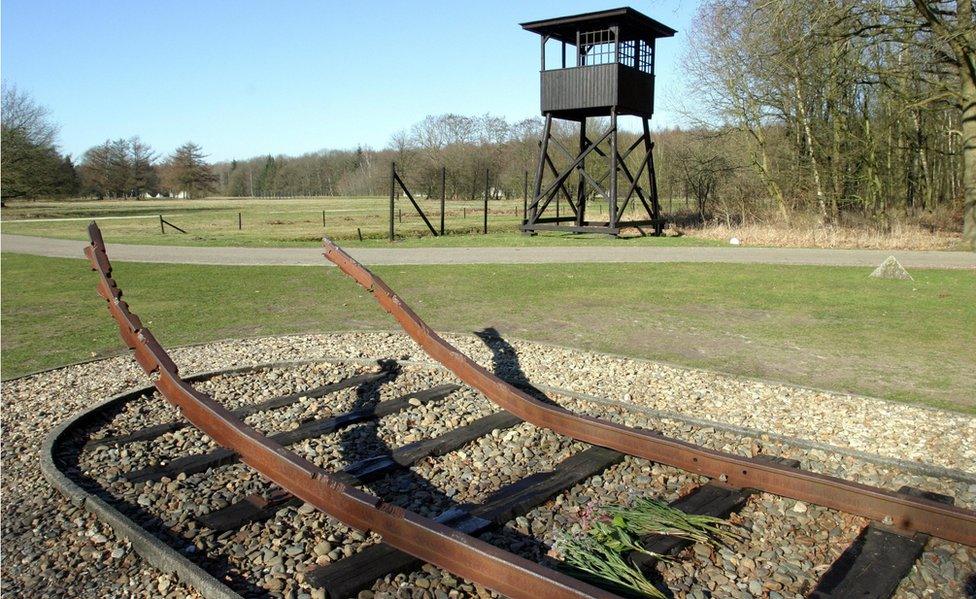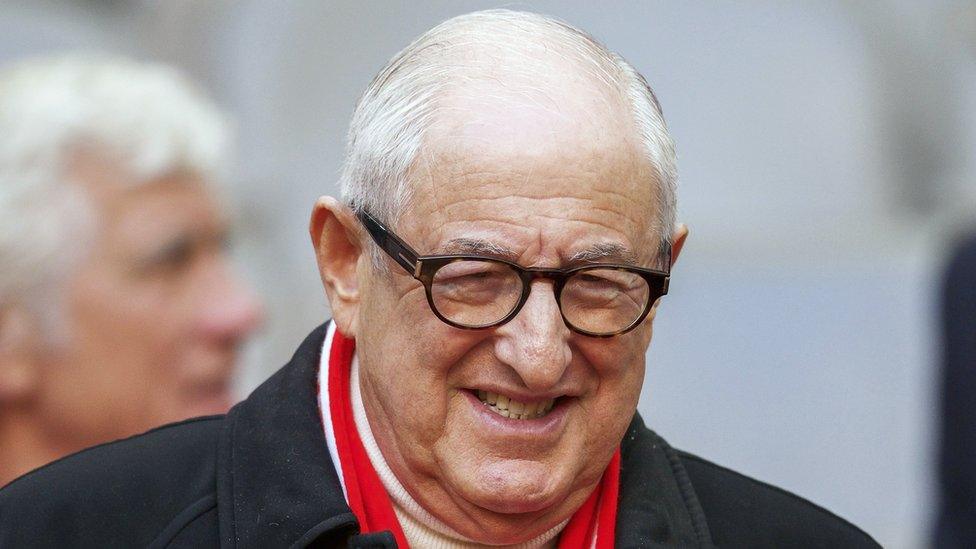Holocaust: Dutch rail firm NS to pay families compensation
- Published

NS made an estimated €2.5m in today's terms by taking Jews to the Westerbork camp
The Netherlands' state-run rail company NS has agreed to set up a commission to compensate Holocaust survivors and their relatives for transporting Jews to a Nazi transit camp.
Its decision to "learn, honour and remember in an enduring way" followed a campaign by Salo Muller, whose parents were murdered at Auschwitz.
Some 107,000 Jews were taken to Westerbork and deported, mainly to deaths camps at Auschwitz and Sobibor.
Only 5,000 survived.
NS said it had decided to avoid a legal battle, years after French rail company SNCF was ordered to pay compensation for its role in deporting 76,000 French Jews, external during World War Two, although that decision was later overturned.
SNCF eventually apologised for its role in 2010, and later agreed a compensation fund after US lawmakers threatened to bar the state-run company from rail contracts.
NS has already apologised in the past for its role in helping the Nazi occupiers in World War Two and has contributed to the renovation of the museum at Westerbork.
What was Dutch railway's role in deportations?
NS said in a statement on Tuesday that it had operated trains on behalf of Germany's Nazi occupiers, external, describing it as a black page in the history of the company and country.
But it did more than just run the trains.
"The NS complied with the German order to make trains available," Dirk Mulder from the National Westerbork Memorial told Dutch TV last year. "The Germans paid for it and said the NS had to come up with a timetable. And the company went and did it without a word of objection."
NS made an estimated €2.5m (£2.2; $2.8m) in today's terms, Dutch public broadcaster NOS estimates, in transporting Jews from across the Netherlands to the Westerbork camp.
Westerbork became a transit camp in 1941 and the first deportees left on 15 July 1942. The final train left on 13 September 1944, with 279 Jews on board. Among those deported from the camp were 245 Sinti and Roma.
Who is Salo Muller?

Salo Muller challenged the Dutch rail company after hearing of a successful campaign in the US
Salo Muller is a former physiotherapist at top Dutch football club Ajax.
In 1941, when he was five, his parents were arrested by the Nazis and put on a train from the capital Amsterdam to Westerbork, where they spent nine weeks before being deported to Auschwitz and murdered.
He decided to act when he heard that the French government had agreed a $60m compensation fund with the US to be distributed among thousands of survivors and their relatives.
After a number of meetings with NS chief executive Roger Boxtel, the company decided a commission would be set up to work out how to compensate survivors and immediate family.
"I don't think I would have dared dream of this outcome," he told Dutch TV in an emotional interview. "For me it means that the NS recognised that this pain has not gone. The grief is still there for very many Jewish people."
- Published3 August 2018
